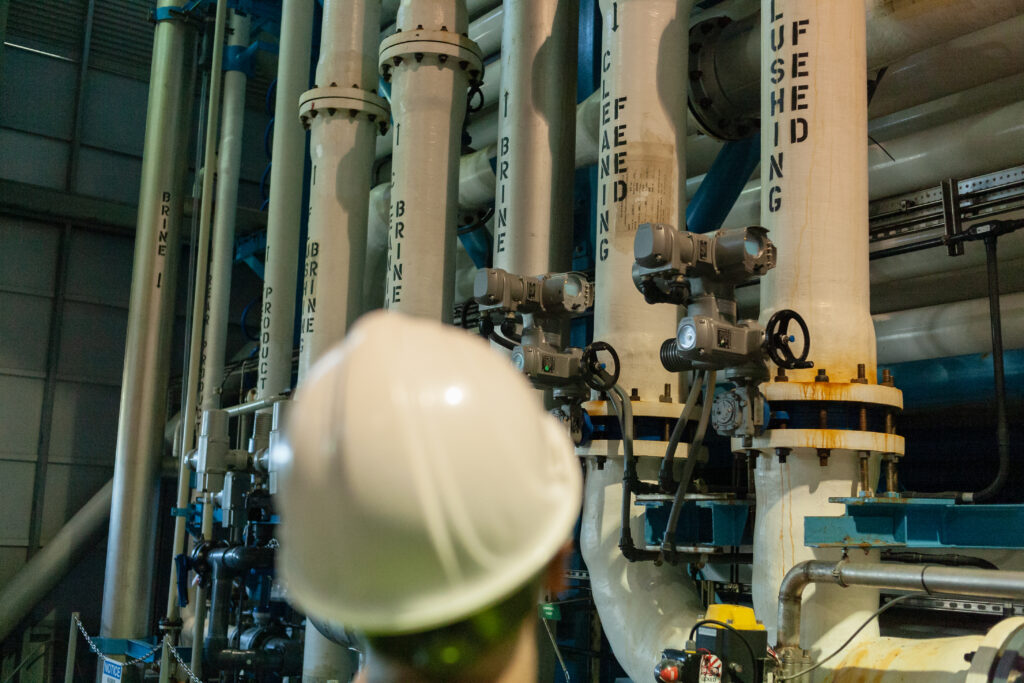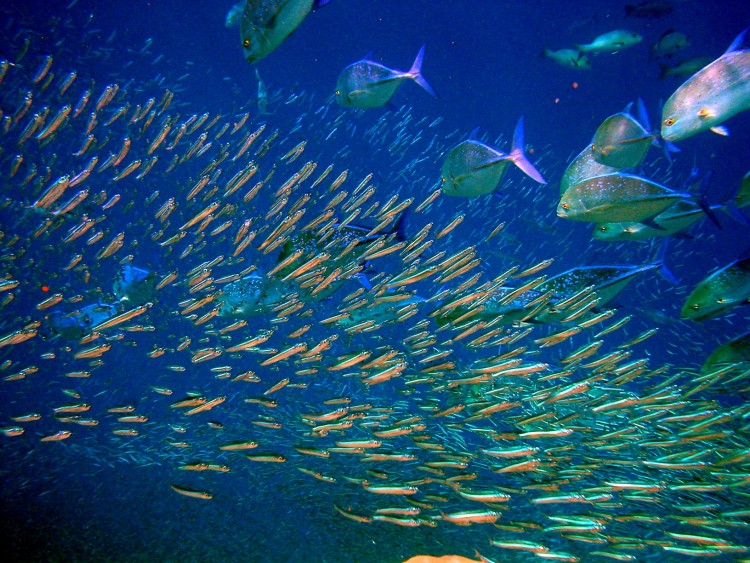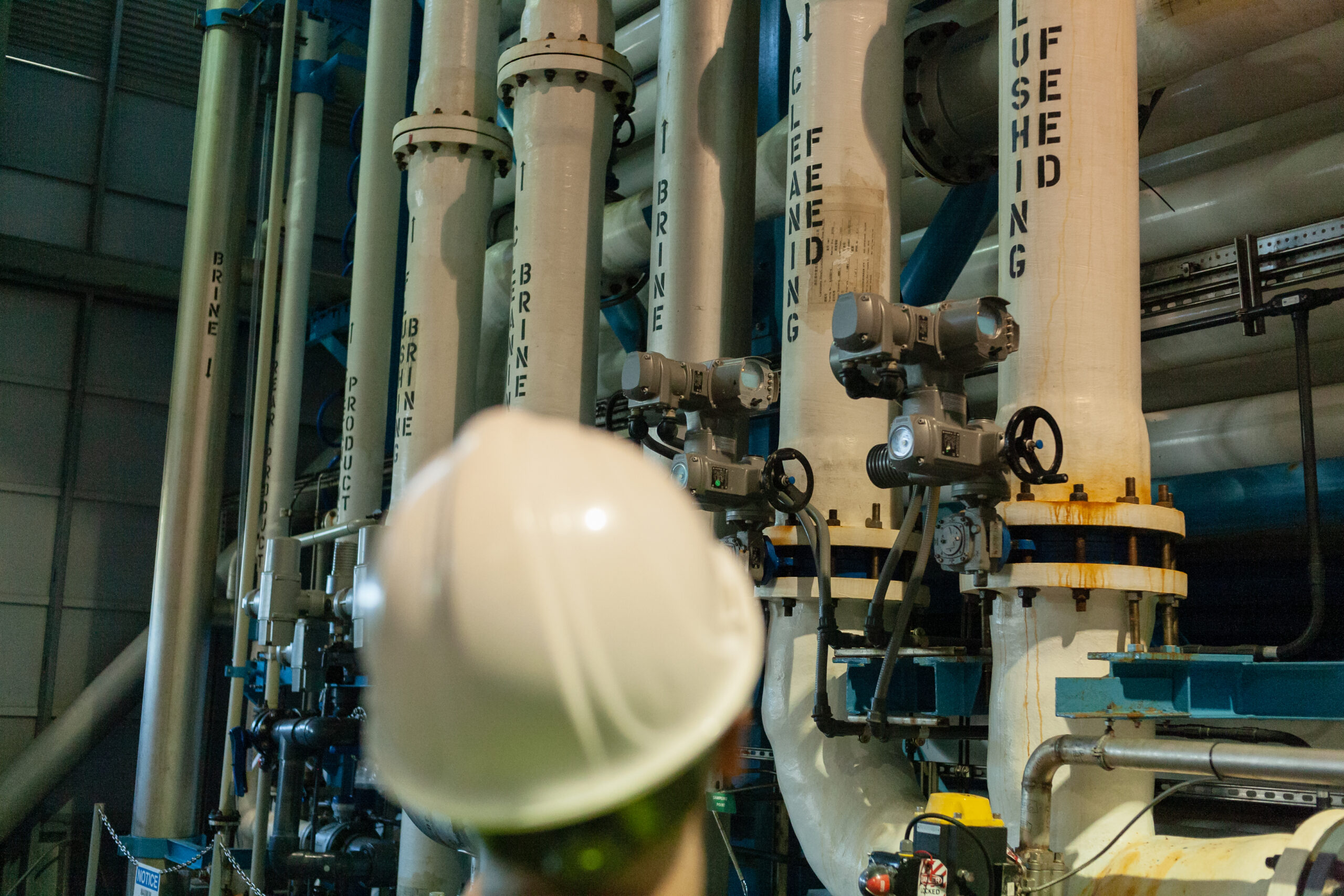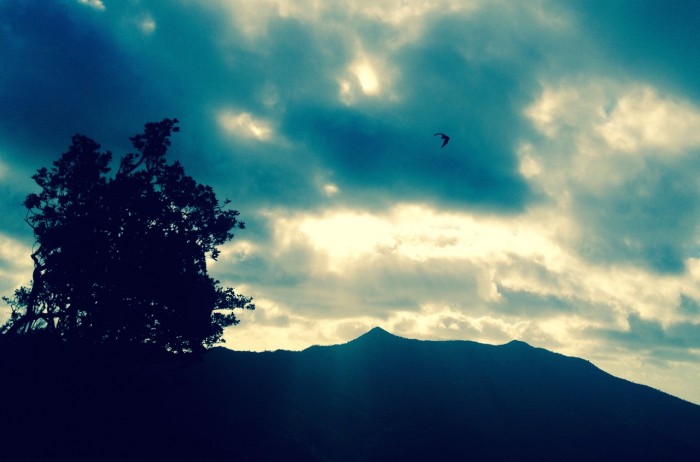In our everyday lives we encounter and are exposed to a dizzying array of chemicals – through the air we breathe, water we drink, food we eat, products we buy, work we do, and environments we move through. A recent review of the scientific literature estimates that the accelerating mass-production of chemicals has led to the accumulation of 350,000 “novel entities” (human-made chemicals that did not previously exist) in the environment.[1] They suggest this exceeds the “planetary boundary” for chemical pollution, meaning it is and will continue to disrupt the operation of ecological systems and have major impacts on human health.
Tag: political ecology
Desalination and the Political (Blue) Economy of Climate Adaptation

A Blue Revolution?
Seawater desalination, the industrial production of drinking water from the ocean, is a practice of increasingly intense interest to thirsty cities across the globe. And why not? It promises the ability to provide a reliable water source that is (seemingly) invulnerable to climate change. What is more, the market is responding, with a global estimated value of roughly $18 billion[1] (c.f., Swyngedouw and Williams 2016). And there is significant expected growth, up to $32 billion (that’s about half the estimated size of the wind industry),[2] in the next four years.
Read More “Desalination and the Political (Blue) Economy of Climate Adaptation”
The Trouble with Bats: Valuing Urban Naturecultures
This post is presented in this week’s series recognizing Earth Day, Friday, April 22.
“Qu’est-ce qu’on va faire à propos des chauves-souris?”
What are we going to do about the bats?
I sit among a small cluster of locals and expats as we sip on coffee and soft drinks sweetened by locally grown sugarcane. We are crowded around a collection of bistro tables pushed together in the center of a busy café. The tropical sky overhead is clear, with not a single cloud in sight. No birds. No bats either.
They came for the bats—not to kill them. No, we are here to discuss ways of relocating the unwelcome creatures elsewhere. Elsewhere could be anywhere—just as long it was away from the towns, away from the orchards. In short, away from humans.
Read More “The Trouble with Bats: Valuing Urban Naturecultures”
New Featured Article!: “Fisheries Privatization” Available as a Free PDF Download
The latest Environment and Society featured article is now available! This month’s article, “Fisheries Privatization and the Remaking of Fishery Systems,” comes from Volume 3 (2012). Courtney Carothers and Catherine Chambers examine specific examples of how nature-society relationships among people, oceans, and fish are remade as privatization policies take root in fishery systems.
Visit the featured article page to download your copy of the article today before it’s gone! A new article is featured every month.

COURTNEY CAROTHERS is an assistant professor of fisheries at the University of Alaska Fairbanks. She is an environmental anthropologist whose research program focuses on understanding social, cultural, and economic diversity in fishing communities and explores ways to sustain that diversity into the future. In one central area of study, she explores the material, social, and symbolic shifts in fishing livelihoods as fishing rights become privatized. In another, she partners with indigenous communities in the Arctic to study social-ecological change and subsistence ways of life. Her specific areas of expertise include: political ecology; resource enclosure and privatization; indigenous knowledge, science studies, and politics of knowledge; subsistence, mixed, and alternative economies; socio-ecological change; fishery systems; and Alaska Native cultures.
CATHERINE CHAMBERS is a doctoral fellow in the Marine Ecosystem Sustainability in the Arctic and Subarctic program at the University of Alaska Fairbanks. As a recipient of Fulbright and Leifur Eiríksson scholarships, she is currently conducting research through Hólar University College and the Blönduós Academic Center in Blönduós, Iceland. Her dissertation research focuses on subarctic coastal communities and issues of access and participation in marine-based livelihoods.



